Telomere Replication Stress Induced by POT1 Inactivation Accelerates Tumorigenesis
- PMID: 27239034
- PMCID: PMC6145145
- DOI: 10.1016/j.celrep.2016.05.008
Telomere Replication Stress Induced by POT1 Inactivation Accelerates Tumorigenesis
Abstract
Genome sequencing studies have revealed a number of cancer-associated mutations in the telomere-binding factor POT1. Here, we show that when combined with p53 deficiency, depletion of murine POT1a in common lymphoid progenitor cells fosters genetic instability, accelerates the onset, and increases the severity of T cell lymphomas. In parallel, we examined human and mouse cells carrying POT1 mutations found in cutaneous T cell lymphoma (CTCL) patients. Inhibition of POT1 activates ATR-dependent DNA damage signaling and induces telomere fragility, replication fork stalling, and telomere elongation. Our data suggest that these phenotypes are linked to impaired CST (CTC1-STN1-TEN1) function at telomeres. Lastly, we show that proliferation of cancer cells lacking POT1 is enabled by the attenuation of the ATR kinase pathway. These results uncover a role for defective telomere replication during tumorigenesis.
Keywords: ATR; POT1; cutaneous T cell lymphoma; replication stress; telomere; thymic lymphoma.
Copyright © 2016 The Author(s). Published by Elsevier Inc. All rights reserved.
Figures
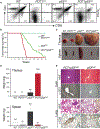
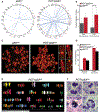
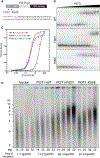
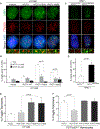


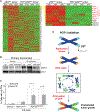
References
-
- Artandi SE, Chang S, Lee SL, Alson S, Gottlieb GJ, Chin L, and DePinho RA (2000). Telomere dysfunction promotes non-reciprocal translocations and epithelial cancers in mice. Nature 406, 641–645. - PubMed
-
- Baumann P, and Cech TR (2001). Pot1, the putative telomere end-binding protein in fission yeast and humans. Science 292, 1171–1175. - PubMed
MeSH terms
Substances
Grants and funding
LinkOut - more resources
Full Text Sources
Other Literature Sources
Molecular Biology Databases
Research Materials
Miscellaneous

